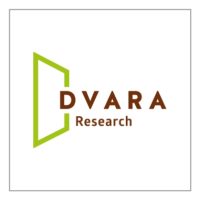The 3rd Annual Conference
3rd Meeting of the Insolvency Scholars Forum and 2nd Meeting of Emerging Scholars Group
14-16 march 2025
Tijara Fort Palace, Alwar, Rajasthan
It often seems that the chief aim of science is to predict the future – to forecast whether tomorrow will bring rain or sunshine, or a natural calamity; to project an economic crisis or downturn; to foresee whether chemotherapy or radiation therapy will be more successful in curing lung cancer; or if an epidemic may strike; predict successes or failures of economies, enterprises, and ideas. But it almost never works. Economic crisis, turndowns, and enterprise failures continue to occur at regular intervals, climate change is ravaging the world through droughts, flooding, fires, intense heat and deforestation, among other environmental events; pandemics like Covid-19 continue to strike, causing social and economic disruption. Yet, nothing works nearly as predicted. But science and economic history is not just about predicting the future, though. Scholars in all fields often seek to broaden our horizons, thereby opening before us new and unknown futures.
In predictions and forecast, and our efforts to improve the future, we rely on experiences, learning, and data from the past. But then, the present is just too different from the past, often defying the past. Yet we should not stop relying on the past to predict the future. Past helps us learn from wise decisions made and avoid mistakes. Same is true of the world of insolvency. Global institutions and insolvency experts have, with best intent, created architype of model insolvency laws to prevent insolvencies, and provide solutions for stressed enterprises in times of crisis, hoping these models would fit into any country or economy, emerging or mature, developed or developing. That has not worked nearly as hoped or expected. Insolvencies continue to occur and offer challenges despite preventive measures and model legislations. Year after year, insolvency scholars and experts continue to research, and debate at conferences, issues and problems that keep popping up, many of them unexpectedly, to find solutions.
To find solutions we cannot avoid studying the past. Studying the past makes us knowledgeable. Knowledge that does not change behaviour is useless. But knowledge that changes behaviour quickly loses its relevance. The more data we have and the better we understand history, the faster history alters its course, and the faster our knowledge becomes outdated. Centuries ago, human knowledge increased slowly, so politics and economics changed at a leisurely pace too. Today our knowledge is increasing at breakneck speed, and theoretically we should understand the world better and better. But the very opposite is happening. Our new-found knowledge leads to faster economic, social and political changes; in an attempt to understand what is happening, we accelerate the accumulation of knowledge, which leads only to faster and greater upheavals. Consequently, we are less and less able to make sense of the present or forecast the future.
ILA has been studying the developments of past three decades and humungous efforts made by global institutions to cope up with them and their aftermath. One area of focus is the direct and indirect impact of insolvency policies on human beings, and the communities they live in. We have been doing this while staying mindful of the present, and keeping a sharp eye on the future.
At Tijara, we will discuss the brief history of tomorrow. Topics of discussion will include an analysis of what we might have or still be overlooking from the past in our present actions, our response and readiness for future. Put differently, technical sessions will spread over learnings from the past, dealing with present, and preparing for future. Mainly based on ILA research and studies, together with experts from India and around the globe, the conference aims to debate and discuss key issues that should shape insolvency policy and practice, to create a better world for humans.
The conference will be attended by judges, policy makers, insolvency regulators, bankers, eminent academics and scholars, practitioners, and other experts from different parts of the world.
who should attend
- INSOLVENCY PROFESSIONALS
- JUDGES
- POLICY MAKERS
- REGULATORS
- BANKS AND FINANCIAL INSTITUTIONS
- ASSET RECONSTRUCTION COMPANIES
- ACADEMICIANS
- INSOLVENCY SCHOLARS
- IN-HOUSE COUNSELS
- INDEPENDENT LAWYERS
- VALUERS
- FINANCIAL CONSULTANTS
- DISTRESSED ASSET INVESTORS
- CHARTERED ACCOUNTANTS
- COMPANY SECRETARIES
- BUSINESS PERSONS
our sponsors













